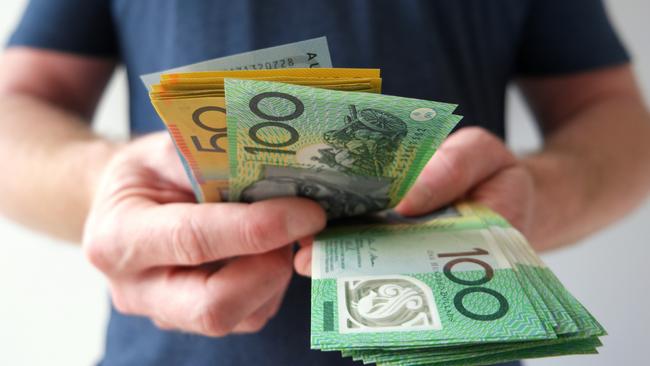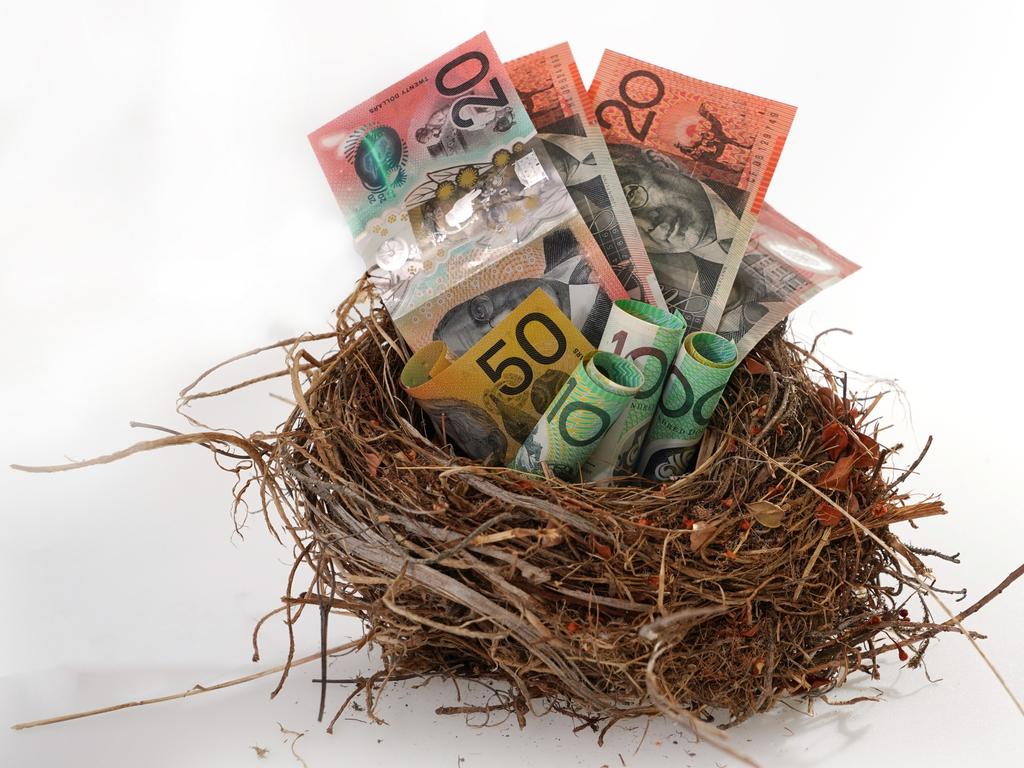Superannuation tips for an end-of-financial-year cash and tax windfall
Consider these strategies quickly to potentially bag a bigger tax refund and supercharge your future wealth.
Business
Don't miss out on the headlines from Business. Followed categories will be added to My News.
A super wealth boost and hefty tax refund loom for Australians who are proactive about retirement saving strategies in the next week.
Thousands of dollars of tax deductions are available for those with money to pump into their superannuation fund, while several government incentives can help grow nest eggs faster.
NGS Super financial planner Toby Perkins says super caps and tax have end-of-financial-year deadlines so “tax-deductible contributions are the big thing for June 30”.
“For most people the driver is maximising their own tax savings,” he says.
Aware Super general manager advice and guidance Peter Hogg says small extra contributions can have a big impact.

“During a cost-of-living crisis it can be hard to make extra contributions of your own, but that shouldn’t stop you from finding out if there are incentives you can take advantage of,” he says.
“The end of financial year presents a last opportunity that many Australians aren’t aware of and therefore don’t capitalise on.”
While there are still 10 days left in 2023-24, super funds have cut-off dates for members wanting to inject extra cash to ensure they receive the money in time. Some are as soon as June 21, so check with your fund.
Here’s how to generate a super boost in the coming days.
VOLUNTARY CONTRIBUTIONS
“Make a personal tax-deductible contribution to super,” Mr Perkins says.
“Going back a few years, only self-employed people could do this, but it’s open to most people these days,” he says.
“It involves making a personal contribution to your super fund then lodging a form to tell your fund you’re going to claim a tax deduction, and then including that in your tax return.”
These contributions, called concessional contributions, have a cap of $27,500 this financial year that also includes employer compulsory contributions and salary sacrifice. The cap climbs to $30,000 from July 1 as it is indexed to rising inflation.
CATCH-UP BONANZA
If you have a lot of money floating around, such as from selling an investment, here’s a great way to get tens of thousands of extra dollars in super and claim a tax deduction for it.
“If your total super balance is under $500,000 at the end of the previous financial year, and you haven’t used up your full concession contribution limit in the last five financial years, you can potentially carry forward those unused amounts and use them up this year,” Mr Perkins says.
People can check how many contributions they have made this year on my.gov.au.
SPOUSE CONTRIBUTIONS
Got a low-income or no-income spouse? A $500-plus tax rebate could come your way if you pump money into their super.
“To get the maximum benefit the receiving spouse’s income needs to be below $37,000 and the person making the contribution needs to do a $3000 spouse contribution,” Mr Perkins says.
“There’s a potential 18 per cent tax offset – up to $540, a pretty decent return on a $3000 contribution.”
CO-CONTRIBUTIONS
Aware Super’s Mr Hogg says the government co-contribution scheme applies to people earning below $58,445 who put some of their own after-tax money into super.
“Contributing $20-$1000, the government will co-contribute 50c for each dollar,” he says.
“That’s up to $500 extra in your super account.”
HEADSTART FOR KIDS
Mr Hogg says co-contributions can also be made to young people just starting in their careers.
The power of compound interest on a $1000 contribution, plus a $500 co-contribution, can multiply that single deposit to $24,500 over 40 years.
UniSuper financial adviser Derek Gascoigne says parents introducing this to children “helps demystify superannuation and can make retirement savings seem less daunting”.
“Rather than giving your loved ones a handout here and there, talking to them, and urging them to invest in super is a valuable lesson,” he says.

CUT-OFF DATES FOR MAKING CONTRIBUTIONS
AustralianSuper: June 21
Cbus Super: June 21
Rest Super: June 21
Australian Retirement Trust June 21
Colonial First State: June 24 BPAY, June 28 direct debit
AwareSuper: June 25
Hesta: June 25
NGS Super: June 25
UniSuper: June 25 (BPAY)
Source: Super fund websites
Originally published as Superannuation tips for an end-of-financial-year cash and tax windfall





